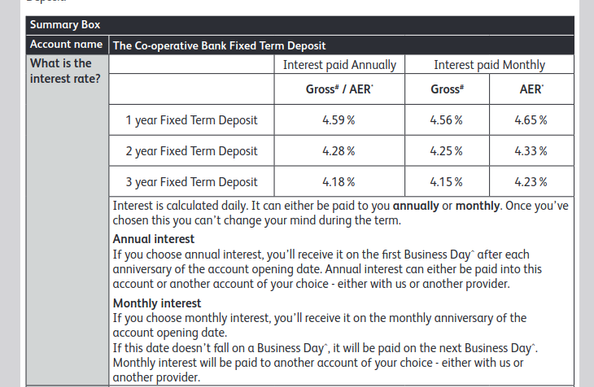At least, you have to leave your #digital #Hardware at #Home and shouldn't have personal #SocialMedia #Accounts, where you rant about #Trump and his #GoonSquad openly - They would't let you in, when they find such Stuff. It's a #Risk and a #Voyage to the #USA should be planned very #carefully. There might be #Reasons to travel there.
Recent searches
Search options
#accounts
@FediThing Thank you!
Another possibility to discover people on a server is also to look at the servers about-page at the members. If they are not public have a look at their profiles directory stream.
@mia
I manually review accounts who want to follow me (too many bot and scam waves). I automatically reject empty accounts!
If you don't want to be mistaken for a fake account, fill out your profile, post something that shows you as a human, only then follow people. How to: https://fedi.tips/how-do-i-customise-my-profile-how-do-i-upload-a-profile-banner-how-do-i-verify-my-account/
AI agents are gaining popularity with hackers, cutting account takeover time by 50% by 2027.
I'm sure none of that #socialsecurity #money, will end up in his #accounts...
Apple now lets users migrate purchases between Apple Accounts.
I'm really surprised this hasn't been a thing sooner than now.
https://9to5mac.com/2025/02/11/apple-migrate-purchases-accounts/
I really love amazing finds, hence:
Please stop recommending or listing #Fediverse #accounts that are literally dead, and in ruins.
Just because somebody "secured" their name by signing up with an arbitrary server, back in May 2023, and posted twice (1. "Hello", 2."I'm so going to switch to Mastodon!") doesn't make their cadaver account worth following.
Recommend a living person instead that chooses to post, once in while. There is ample choice of fabulous people here!
Thank you for not wasting my time with disappointments.
(Boost appreciated.)
@mos_8502 sadly, #Shitter has refused to #comply with my demand to provide me with an offline-searchable & human-readable #archive of my #Accounts and subsequent deletion to this day.
- Not shure if I should check out some lawyer like https://wbs.legal or ask #ConsumerProtection and #DataProtection authorities for assistance.
Cuz I'm shure @Bundesverband and @noybeu would love to fine #Musk into compliance.
IF YOU ARE ON A #TECH INSTANCE THAT IS CLOSING DOWN, YOU CAN ALWAYS MOVE TO #TECHHUB.
We just got a new server in Canada and are adding new moderators: we are well-connected, and ready to bring in anyone who needs an account here. If your server is #ShuttingDown, and you want to talk about #programming, #engineering, #electronics, #AI, #gaming, or anything else #science and #technology related, please come over here right away so we have time to get everything transferred!
#FediTips: To move an account, make the new account, and go into Settings -> Account, and use the two options at the bottom to link each account to the other. You can also download all your data, and import some of your old #Mastodon data on the new one.
If you need help, feel free to contact me: I am open to helping anyone who needs it with making #accounts, moving accounts, and getting set up on a new #account.
#fediverse, please #boost this to help get people #moving from the closing servers!
(6/N) A final set of prompts, for three more categories. Add the related data "assets" that come to your mind to your spreadsheet:
#Geospatial data
Current #position
Place of residence
GNSS-precision tracks
Appointment #calendars
#Ticket purchases
Room #reservations
…
#Internet access
#Router
Network neutrality
Hardware
Software
Means of #payment
…
Email & Messaging (including content)
Social media
Cloud
Pseudonyms & personas
…
Remember many data "assets" will fall into multiple categories. For every asset, leave a checkmark in all applicable category columns.
Start of this thread:
https://mastodon.de/@tuxwise/113503228291818865
(4/N) Having reflected a bit on your abstract assets, try to brainstorm as many of your related data and device assets as possible. Most of them will fall into one or more of the following categories:
Personally Identifiable Information (#PII)
Social graphs
Data and metadata
#Geospatial data
Infrastructure
#Accounts and #handles
For instance, your smartphone photo collection "asset" probably contains geospatial data (#GPS coordinates in #EXIF); data and metadata (phone brand and model, in EXIF); potentially also information about your social graph, in case your family, friends or acquaintances are on your photos.
It's probably best to track your data and device assets in a spreadsheet, with the above categories as additional columns, so you can place a checkmark, where appropriate. I'd also suggest to add a column to track where the data is stored / the device is located.
Here's a little list of Personally Identifiable Information (PII), to get you started (other categories in next posts):
Any kind of identity document
Dates of significant life events
#Biometric data
#Health data
#DNA test results
#Genealogy data
…
Start of this thread:
https://mastodon.de/@tuxwise/113503228291818865
Ideas?
#fixedrate #account has a larger % #AER for #monthly over #annual #interest #payments. It doesn't appear to be #compound (with the monthly #interest going back into the #account) as you specify a different account for it to be #paid into. #Customerservice couldn't give me a reason.
I know it doesn't really matter but it is a #puzzle and I'd like the #solution.
#Banking #CoopBank #Finance #interestrates #accounts #money #saving #Bank #banks #financial #accountants #math #maths #numbers
This is one of the #art #accounts I still miss from the birdsite. @Daniel_Red_Eire always had some new curation, some painting, sculpture, or photo, usually on a daily basis. Anybody got suggestions of who to follow here? #artaccount #artposting
As a child, Mathew Desmond experienced poverty firsthand.
He saw his family home repossessed and endured the stresses and humiliations of his family’s lack of means.
It raised the question that he would go on to dedicate his professional life to answering:
Why is there such stark #inequality in America?
The hard truth, he said, is that so many of us benefit from it.
Desmond shared a litany of statistics illustrating the growing burden of poverty and inequality in the United States:
• 1 in 3 families live in a household that has an income of $55,000 a year or less.
• 38 million people are below the federal poverty level of $30,000 for a family of four.
• Evictions have increased by 22% since the turn of the century.
• The number of public-school kids who are unhoused has increased by 74% since the turn of century.
• The amount of inflation-adjusted, non-mortgage debt has increased by more than 200% -- and the number of families reporting no income apart from food stamps has quadrupled since the 2008 recession.
• Since 1985, rent increases have outpaced wage growth by 325%.
• Each year, people are charged $11 billion in overdraft fees and $10 billion in payday loan fees.
“So, here's one reason there's so much poverty in America today:
because the poor are #exploited,”
said Desmond, author of the Pulitzer Prize-winning book "Evicted" and his more recent work "Poverty, by America".
“I think it's a word we should use more.”
The exploitation is perpetuated, not only by the corporations, financial institutions, and landlords who withhold fair wages, charge exorbitant fees, and profit off those in poverty,
but also by affluent Americans who benefit from the exploitation, he said.
Desmond quoted an analogy from novelist Tommy Orange,
“Kids are jumping out the windows of burning buildings, falling to their deaths. And we think the problem is that they’re jumping.”
The American approach to poverty has often been to focus on those who are poor and what they can do to uplift themselves -- rather than changing the systems that keep them poor.
This can be uncomfortable for those whose #property #values are protected by segregation of affordable housing,
those who have invested in the #stock #market and make money when exploitative corporations net profits,
and those with #free #checking #accounts that are subsidized by the poor who pay fees for their lack of capital, he explained.
The affluent also benefit from government subsidies more than the poor, he said.
According to Desmond, the #wealthiest families in the United States receive an average of about $35,000 annually in tax benefits, while the #poorest get an average of
$25,000 in subsidies.
These are realized in #mortgage #incentives, special #investment #accounts, like #529 accounts that help pay for college, and other #tax #breaks for the wealthy.
Many affluent families further contribute to poverty by building communities that exclude and marginalize the poor
— pushing them out of their neighborhoods using #zoning ordinances, Desmond said
https://www.aamc.org/news/we-can-solve-poverty-america-we-just-don-t-want
Das #Fediverse ist mittlerweile gewachsen und für viele ein zu Hause geworden - nicht nur für die Deadbird-Aussteiger. Frage in die Runde: Welche Accounts könnt ihr empfehlen? Welchen sollte man (unbedingt) folgen?
Here's an example of how #Google breaks #accounts how their utter lack of #support/contact drives #users mad. @lauren might appreciate this.
I don't generally use Google services. I have one account I use for one specific purpose. I signed into it today for the first time in a year. Got the "enter the #verification number we give you" prompt with the option for text or voice call.
I always choose voice call. Got the code, entered it, hunkey-dorey.
1/x
#Rightwing #family #moved to #Russia to #escape #LGBTQ+ #people. Then #Russia #froze their #bank #accounts
The #family of 10 has experienced quite the #CultureShock.
#Women #Transgender #LGBTQ #LGBTQIA #Canada #Russia #Conservatives #Extremism #Religion #Hate #Bigotry #Homophobia #Transphobia #EmptyThePews
Montana GOP Senate candidate says he lied to ranger about gunshot wound in 2015
#Tim #Sheehy, a former Navy SEAL who is the #Republican candidate in a U.S. Senate race in #Montana that could determine control of the chamber,
has cited a gunshot wound that he said left a bullet in his right arm as evidence of his toughness.
“I got thick skin — though it’s not thick enough. I have a bullet stuck in this arm still from Afghanistan,” Sheehy said in a video of a December campaign event posted on social media, pointing to his right forearm.
It was one of several #inconsistent #accounts Sheehy has shared about being shot while deployed.
And in October 2015, more than a year after he left active duty, he told a different story.
After a family visit to Montana’s Glacier National Park, he told a National Park Service ranger that he accidentally #shot #himself in the right arm that day when his Colt .45 revolver fell and discharged while he was loading his vehicle in the park.
The self-inflicted gunshot left a bullet lodged in Sheehy’s right forearm, according to the written description accompanying the federal citation that the ranger, a federal law enforcement officer, gave Sheehy for illegally discharging his weapon in a national park.
The citation said the description was based on Sheehy’s telling of events.
Asked this week about the citation, which has not been previously reported, Sheehy told The Washington Post that the statement he gave the ranger was a lie
Ukrainian police detain cybercriminals trying to sell millions of stolen email and Instagram accounts
https://therecord.media/ukraine-cyber-police-arrest-three-selling-millions-stolen-accounts #Ukrainian #police #cybercriminals #email #Instagram #accounts
I'm still finding verified #accounts from #news sites and #media organizations on #Mastodon for my list:
Now it contains more than 270 accounts in 16 languages. #German is still far in front, but #english is growing fast. And there are accounts in #italian, #spanish, #swedish, #dutch, #french, #catalan, #basque, #welsh, #turkish, #slovakian, #portuguese, #finnish, #danish & #czech.
The majority is very active.
Have a look: https://docs.google.com/spreadsheets/d/1ixsccIFQ4uD2HFlf92Ag7VS3rNOGwa97wFsSb3JxCwo/edit#gid=876665327




